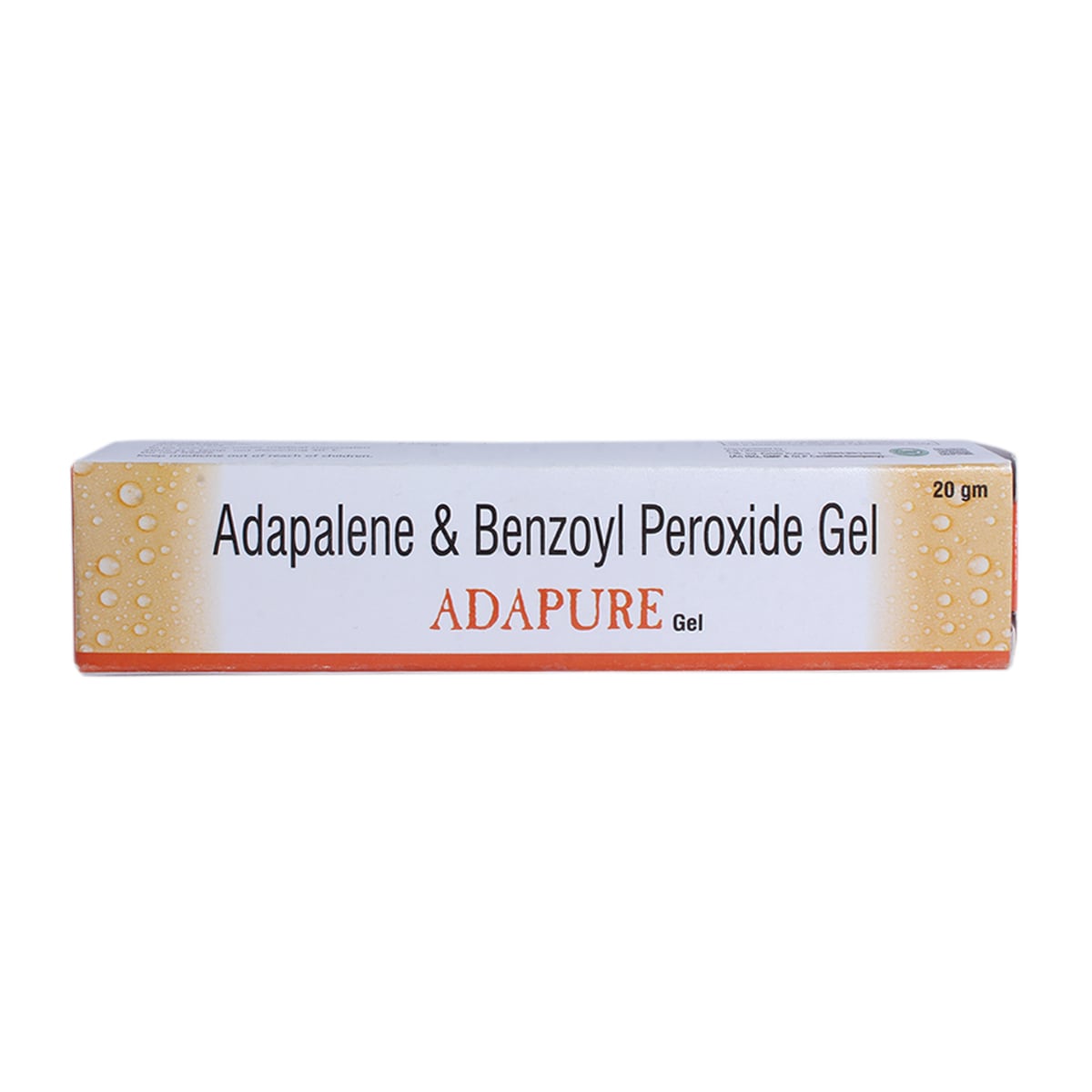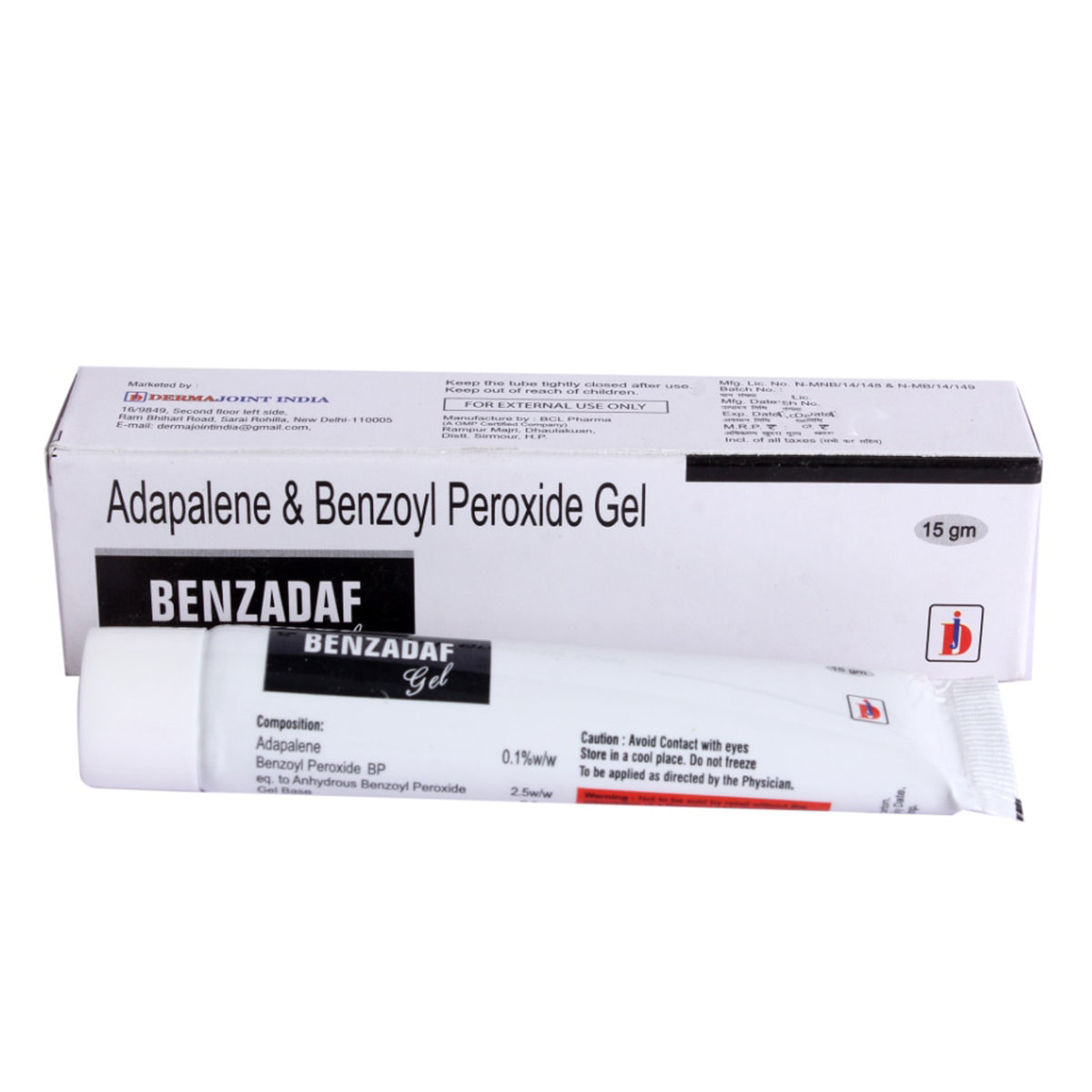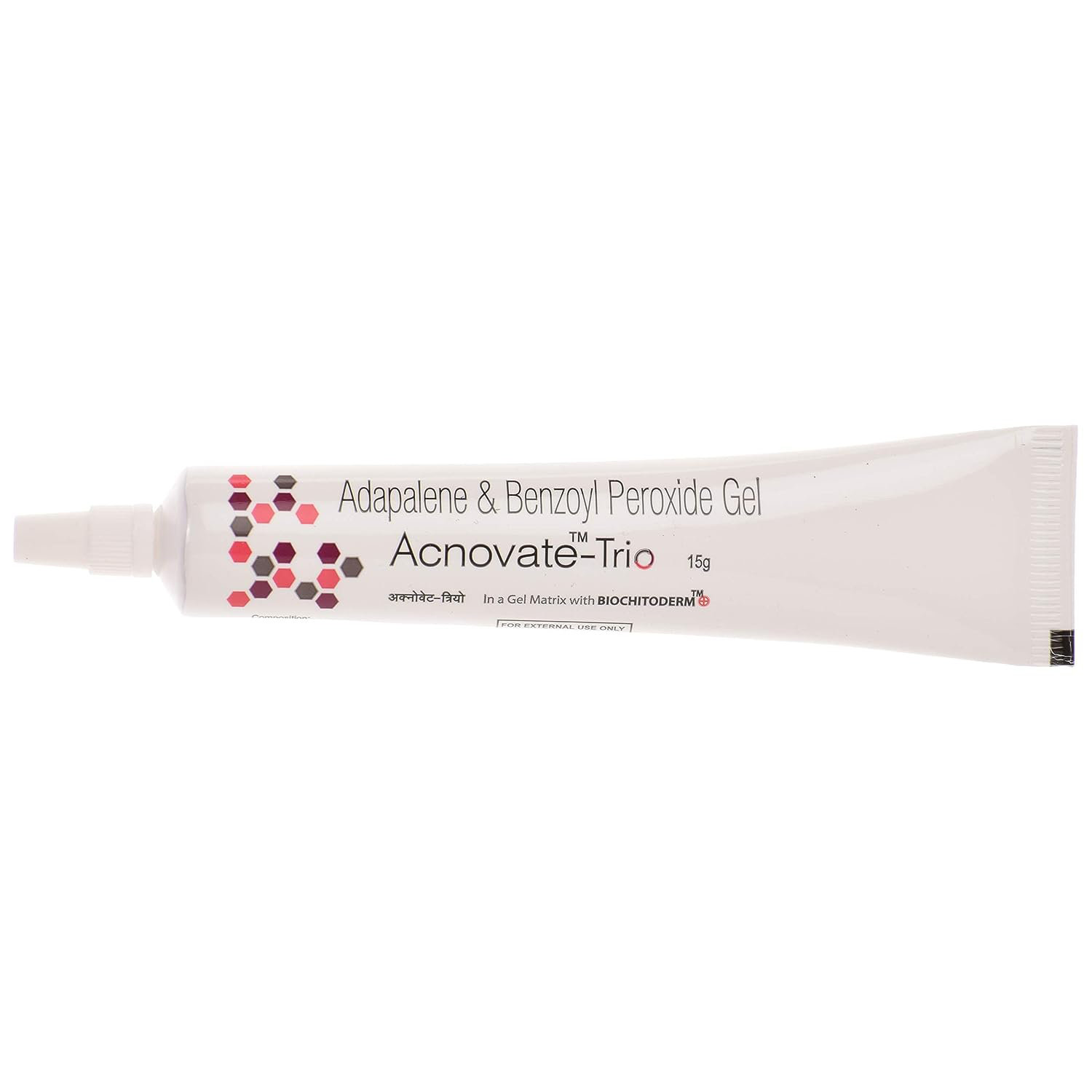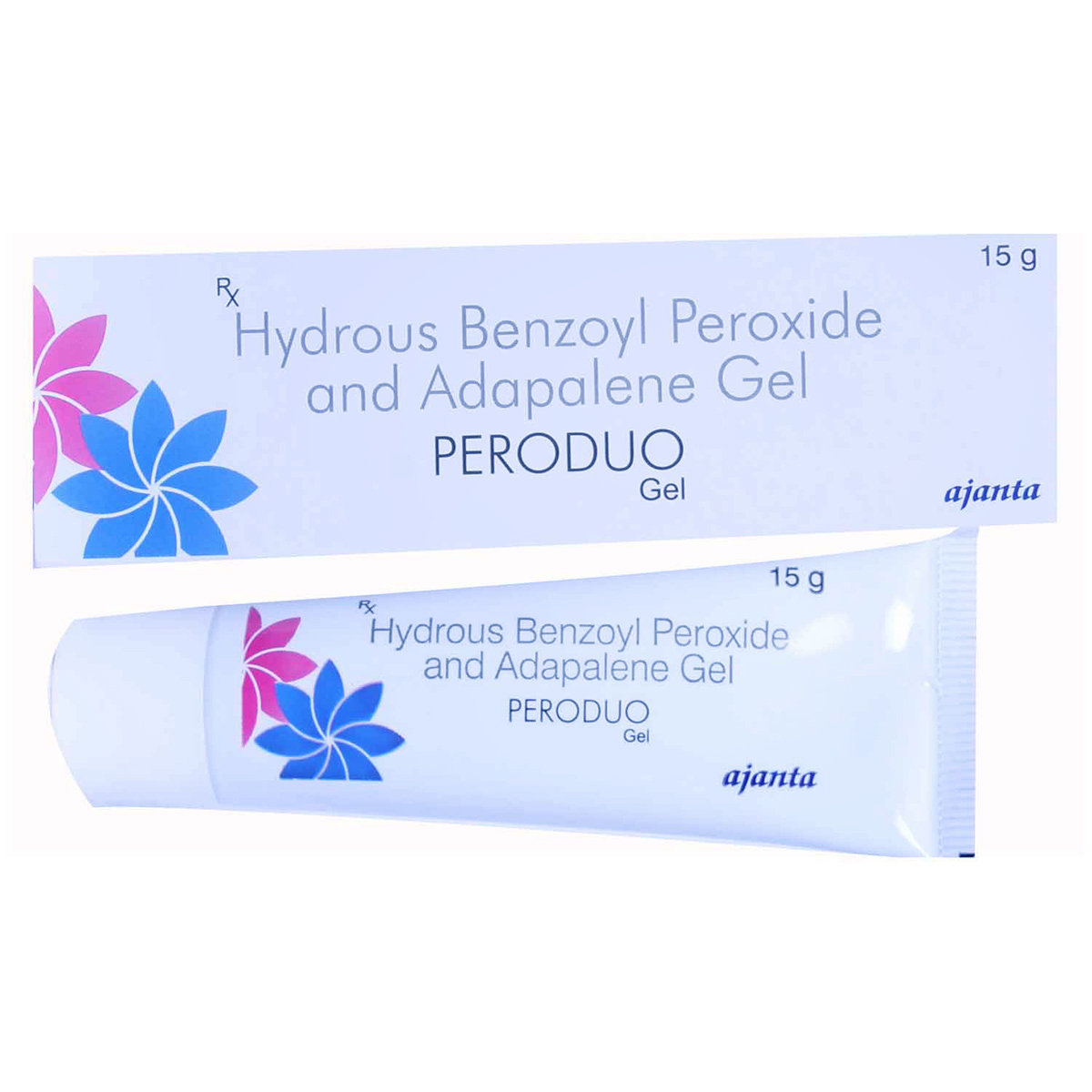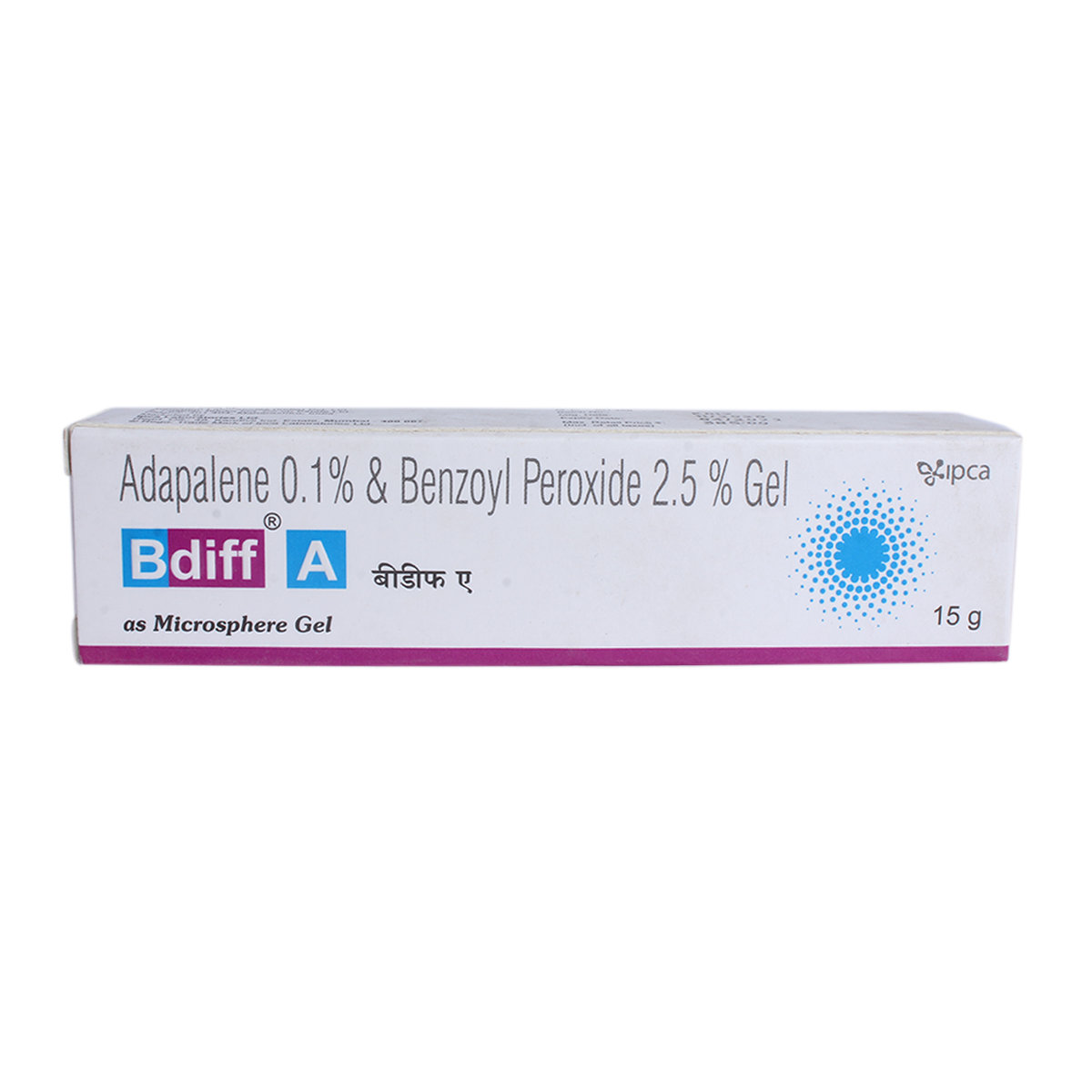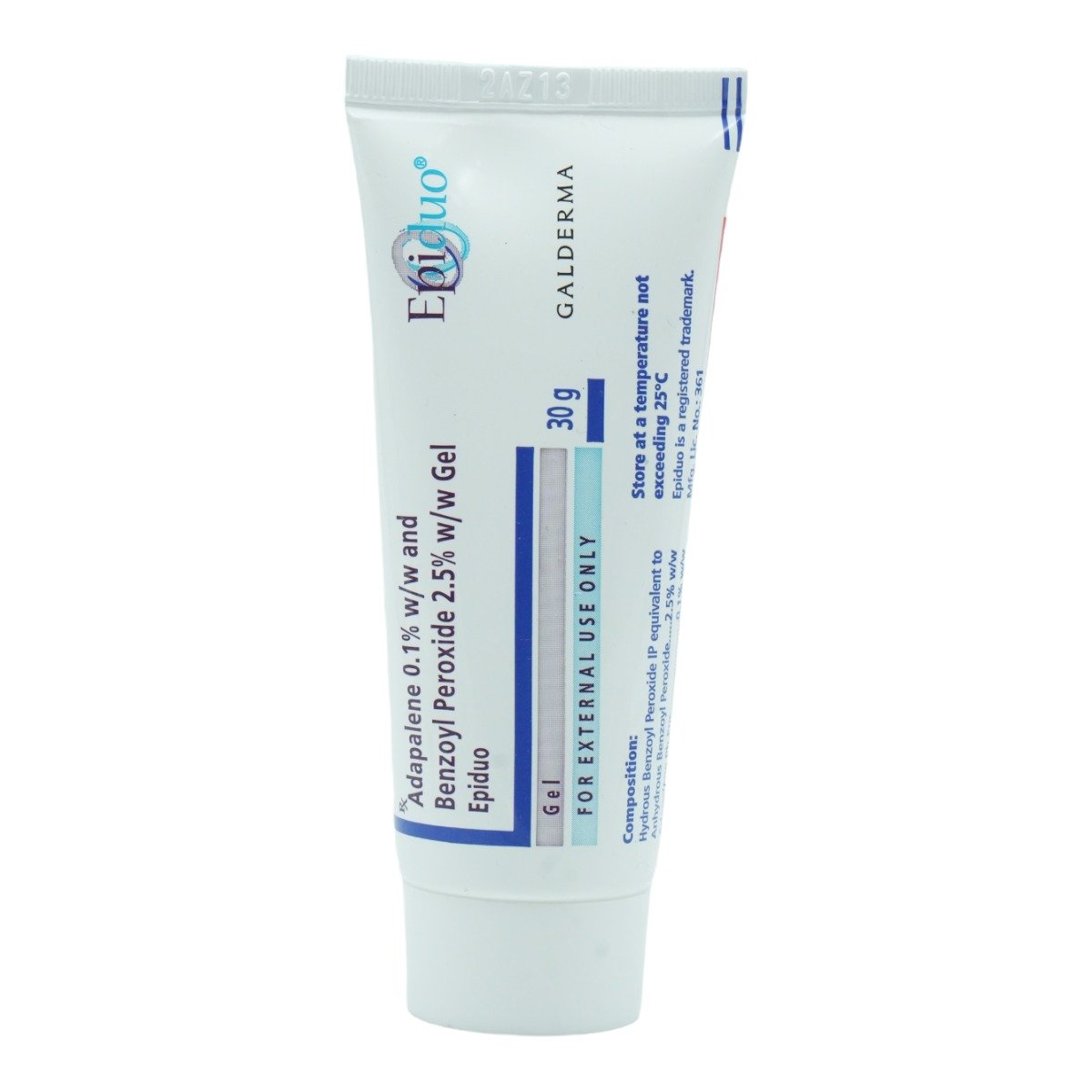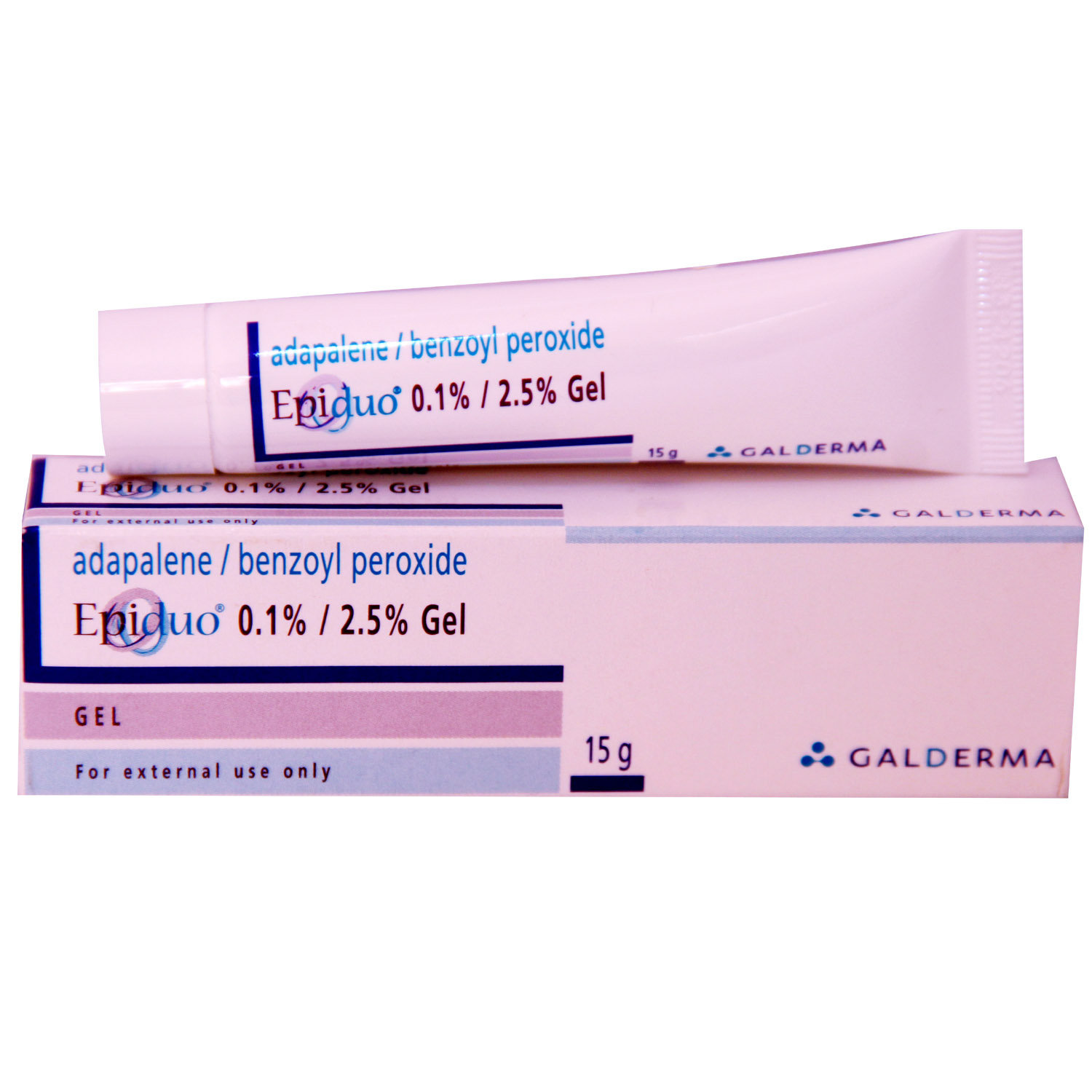Acvoxyl AD Gel


MRP ₹220
(Inclusive of all Taxes)
₹33.0 Cashback (15%)
Provide Delivery Location
Online payment accepted
 Prescription drug
Prescription drugWhats That
Composition :
Manufacturer/Marketer :
Consume Type :
Return Policy :
About Acvoxyl AD Gel
Acvoxyl AD Gel belongs to the class of dermatological preparations called ‘antiacne’ used to treat acne (pimples) and remove the skin's upper dead layer. Acne is a common skin condition and occurs when hair follicles are blocked with dead skin cells and oil. The acne-causing bacteria feeds on sebum (natural oil produced by skin) causing redness and swelling.
Acvoxyl AD Gel is a combination of two drugs: Adapalene (retinoids) and Benzoyl peroxide (keratolytic agent). Adapalene belongs to the retinoid class (human-made vitamin A) which works by loosening the cells on the skin’s surface and unblocks pores by reducing oil production in the skin. Thereby, decreases pimples, whiteheads, and blackheads. Benzoyl peroxide is a keratolytic agent that breaks down a protein known as keratin (that forms part of skin structure) and removes dead skin cells and softens skin. Additionally, Benzoyl peroxide possesses antibacterial properties and kills bacteria that cause acne.
Take Acvoxyl AD Gel as prescribed. Acvoxyl AD Gel is only for external use. Avoid contact of Acvoxyl AD Gel with nose, ears, mouth, or eyes. In case Acvoxyl AD Gel comes in contact with these areas accidentally, rinse with warm water thoroughly. Your doctor will advise you how often you take Acvoxyl AD Gel based on your medical condition. You may experience dry skin, scaling, local skin rash, irritation, redness, or burning sensation of the skin in some cases. Most of these side effects of Acvoxyl AD Gel do not require medical attention and gradually resolve over time. However, if the side effects persist or worsen, please consult your doctor.
If you are known to be allergic to Acvoxyl AD Gel or any other medicines, please tell your doctor. Do not apply Acvoxyl AD Gel on cuts, open wounds, scrapes, sunburned, windburned, chapped, dry, or irritated skin. Avoid exposure to tanning beds or sunlight while using Acvoxyl AD Gel as it may make the skin more sensitive to sunlight and cause sunburn. Wear protective clothing and use sunscreen while going out to protect your skin from sunburn. If you are pregnant or breastfeeding, please inform your doctor before taking Acvoxyl AD Gel. Do not apply Acvoxyl AD Gel in large amounts or use for a long time than prescribed as it does not give quick or better results but increases the risk of side effects such as irritation, scaling, or redness of the skin. If you have eczema (itchy, swollen, rough, and cracked skin) or sunburned skin, please inform your doctor before taking Acvoxyl AD Gel.
Uses of Acvoxyl AD Gel
Directions for Use
Medicinal Benefits
Acvoxyl AD Gel is a combination of two drugs: Adapalene and Benzoyl peroxide used to treat acne (pimples). Adapalene is a retinoid (human-made vitamin A) that loosens the cells on the skin’s surface and unblocks pores by reducing oil production in the skin. Thereby, decreases pimples, spots, whiteheads, and blackheads. Also, it increases the production of new skin cells and helps in natural exfoliation (removal of dead skin cells) of the outer layers of the skin. Adapalene has an anti-inflammatory effect and thus reduces irritation and soreness. Benzoyl peroxide is a keratolytic agent that breaks down a protein known as keratin (that forms part of skin structure) and removes dead skin cells and softens skin. Additionally, Benzoyl peroxide possesses antibacterial properties and kills bacteria that cause acne.
Storage
- Apply moisturizer immediately after showering or bathing.
- Use a moisturizer containing lanolin, petroleum jelly, glycerine, hyaluronic acid or jojoba oil.
- Do not use hot water for bathing. Instead use warm water and limit showers and bath to 5 to 10 minutes.
- Apply a sunscreen with SPF-30 or higher.
- Avoid harsh soaps, detergents and perfumes.
- Do not scratch or rub the skin.
- Drink adequate water to prevent dehydration.
- Wear pants, full sleeves and a wide-brimmed hat while going out in the sun.
- Skin rash caused by allergies is due to irritants or allergens. Therefore, avoid contact with such irritants.
- Consult your doctor for proper medication and apply an anti-itch medication. Follow the schedule and use the medication whenever needed.
- Protect your skin from extreme heat and try to apply wet compresses.
- Soak in the cool bath, which gives a soothing impact to the affected area.
- Consult your doctor if you experience skin redness, itching, or irritation after taking medication.
- Apply cool compresses or calamine lotion to the affected skin area to reduce irritation.
- Stay hydrated by drinking plenty of water to help alleviate symptoms and keep your skin soothing.
- Monitor your skin condition closely and promptly report any changes, worsening symptoms, or concerns to your healthcare provider.
- Avoid hot or cold temperatures, and shower with lukewarm water.
- Apply sunscreen with an SPF of at least 30 every day, even in winter.
- Limit spicy foods and other foods that can cause redness.
- Limit alcohol consumption, especially red wine.
- Avoid clothing made from wool and other irritating fabrics.
- Don't exfoliate too much, and use gentle scrubs.
- Avoid products with menthol, camphor, or sodium lauryl sulfate.
- Identify and avoid allergens that can cause allergic reactions.
- Use a gentle, non-drying cleanser and moisturizer that are suitable for your skin type.
- After taking a shower or bath, apply a moisturizer to damp skin.
- Use petroleum jelly or other thick emollients.
- Use a hypoallergenic, fragrance-free moisturizer 2 to 3 times a day or as frequently as required.
- Exfoliate your skin gently using a pumice stone or slightly abrasive sponge.
- Do not scrub your skin.
- Avoid hot showers or baths. Instead take short, warm showers or baths.
- Use mild soap or skin cleansers with added moisturizer.
- Drink lots of water.
- Use sunscreen and wear protective clothing while going out to protect yourself from sun damage.
Drug Warnings
If you are known to be allergic to Acvoxyl AD Gel or any other medicines, please tell your doctor. Do not apply Acvoxyl AD Gel on cuts, open wounds, scrapes, sunburned, windburned, chapped, dry, or irritated skin. Acvoxyl AD Gel is only for external use. Do not swallow Acvoxyl AD Gel. In case of accidental swallowing, please consult a doctor. Avoid contact of Acvoxyl AD Gel with nose, ears, mouth, or eyes. In case Acvoxyl AD Gel comes in contact with these areas accidentally, rinse with warm water thoroughly. Avoid exposure to tanning beds or sunlight while using Acvoxyl AD Gel as it may make the skin more sensitive to sunlight and cause sunburn. Wear protective clothing and use sunscreen while going out to protect your skin from sunburn. If you are pregnant or breastfeeding, please inform your doctor before taking Acvoxyl AD Gel. Do not apply Acvoxyl AD Gel in large amounts or use for a long time than prescribed as it does not give quick or better results but increases the risk of side effects such as irritation, scaling, or redness of the skin. If you have eczema (itchy, swollen, rough, and cracked skin) or sunburned skin, please inform your doctor before taking Acvoxyl AD Gel.
Drug-Drug Interactions
Drug-Drug Interactions
Login/Sign Up
Drug-Food Interactions
Drug-Food Interactions
Login/Sign Up
Diet & Lifestyle Advise
- Avoid sun exposure while using Acvoxyl AD Gel as it may make the skin more sensitive to sunlight and cause sunburn. Wear protective clothing and use sunscreen while going out to protect your skin from sunburn.
- Regular exercise can improve your mood and self-esteem though it doesn’t clear acne. Take a shower immediately after finishing exercise as sweat may irritate acne.
- Do regular hair wash regularly and avoid hair falling across the face.
- Remove the make-up completely before going to bed.
- Avoid using products that may cause skin irritation such as harsh soaps, skin cleansers, shampoos, hair removers or waxes, hair colouring or permanent chemicals, detergents, and rough fabrics.
Side Effects of Acvoxyl AD Gel
- Dry skin
- Scaling
- Local skin rash
- Skin irritation
- Skin redness
- Burning sensation of the skin
Habit Forming
Therapeutic Class
All Substitutes & Brand Comparisons
RX
Benad Gel 20 gm
Skinska Pharmaceutica Pvt Ltd
₹195.5
(₹8.8/ 1gm)
11% CHEAPERRX
Rox-ADP Gel 20 gm
Amwill Healthcare Pvt Ltd
₹206
(₹9.27/ 1gm)
6% CHEAPERRX
Adapure Gel 20gm
Iceberg Health Care Pvt Ltd
₹281
(₹12.65/ 1gm)
27% COSTLIER
Product Substitutes
Author Details
We provide you with authentic, trustworthy and relevant information
Drug-Diseases Interactions
Drug-Diseases Interactions
Login/Sign Up
FAQs
Acvoxyl AD Gel contains Adapalene and Benzoyl peroxide. Adapalene is a retinoid (man-made vitamin A) that loosens the cells on the skin’s surface and unblocks pores by reducing the production of oil in the skin. Thereby, decreases pimples, spots, whiteheads and blackheads. Benzoyl peroxide is a keratolytic agent that works by breaking down a protein known as keratin (that forms part of skin structure) and removes dead skin cells and softens skin. Additionally, Benzoyl peroxide possesses antibacterial properties and kills bacteria that causes acne.
Acvoxyl AD Gel may cause photosensitivity (increased skin sensitivity to sunlight) in the treated areas. Therefore, avoid or limit exposure to sunlight and sunlamps. You are advised to use sunscreen and wear protective clothing while going out to prevent sunburn.
No, Acvoxyl AD Gel is not recommended for eczema (itchy, cracked, swollen or rough skin) patients as it may cause severe irritation. Therefore, if you are suffering from eczema, inform your doctor before using Acvoxyl AD Gel.
Yes, Acvoxyl AD Gel may cause skin irritation as a side effect. However, if the irritation persists or worsens, stop using Acvoxyl AD Gel and consult a doctor.
Yes, Acvoxyl AD Gel may bleach coloured fabrics or hair. Therefore, avoid contact of Acvoxyl AD Gel with hair or fabrics and thoroughly wash your hands after using Acvoxyl AD Gel.
Yes, Acvoxyl AD Gel may cause dryness of the skin. You can use a moisturizer while using Acvoxyl AD Gel to prevent dry skin. However, do not apply Acvoxyl AD Gel and moisturizer at the same time as it may reduce the effectiveness of Acvoxyl AD Gel. Please consult a doctor before using other products with Acvoxyl AD Gel.
Drug-Drug Interactions Checker List
- ISOTRETINOIN
- TRETINOIN
- BEXAROTENE
- TRIFAROTENE
- AMINOLEVULINIC ACID
- METHOXSALEN
- PORFIRMER
- VERTEPORFIN
- DAPSONE
- METHYL AMINOLEVULINATE
- SALICYLIC ACID
- SULFUR
- RESORCINOL
Special Advise
- Do not squeeze, pop or pick spots as it may worsen them and cause permanent scarring.
- You are advised to consult a dermatologist if acne persists or worsens after using Acvoxyl AD Gel for 1 month.
Disease/Condition Glossary
Acne (pimples): It is a common skin condition that occurs when hair follicles are blocked with dead skin cells and oil, causing pimples, whiteheads, and blackheads. Acne affects people of all ages but is most common among teenagers. Acne symptoms include pus-filled pimples, uninflamed (not swollen) blackheads, red, large, and tender bumps. The treatment for acne includes certain creams, cleansers, and antibiotics.

Have a query?
Alcohol
Caution
Interaction of Acvoxyl AD Gel with alcohol is unknown. Please consult a doctor before consuming alcohol while using Acvoxyl AD Gel.
Pregnancy
Unsafe
Acvoxyl AD Gel is a category C pregnancy drug and is usually not recommended for pregnant women. Please consult a doctor if you are pregnant.
Breast Feeding
Caution
It is unknown whether Acvoxyl AD Gel is excreted in human milk. Therefore, Acvoxyl AD Gel is given to breastfeeding mothers only if the doctor thinks benefits are greater than risks. However, do not apply Acvoxyl AD Gel on the chest area to avoid the contact of Acvoxyl AD Gel with the baby.
Driving
Safe if prescribed
Acvoxyl AD Gel usually does not affect your ability to drive or operate machinery.
Liver
Safe if prescribed
If you have any concerns regarding the use of Acvoxyl AD Gel in patients with Liver problems, please consult a doctor.
Kidney
Safe if prescribed
If you have any concerns regarding the use of Acvoxyl AD Gel in patients with kidney problems, please consult a doctor.
Children
Caution
Acvoxyl AD Gel is not recommended for children below 9 years as the safety and effectiveness were not established.


